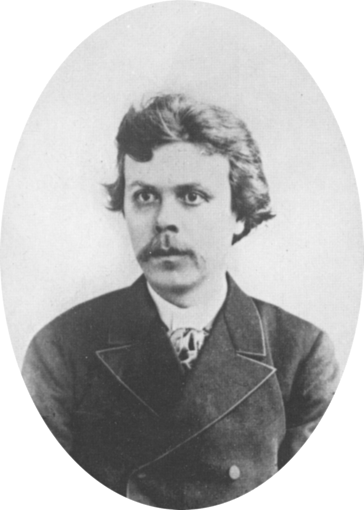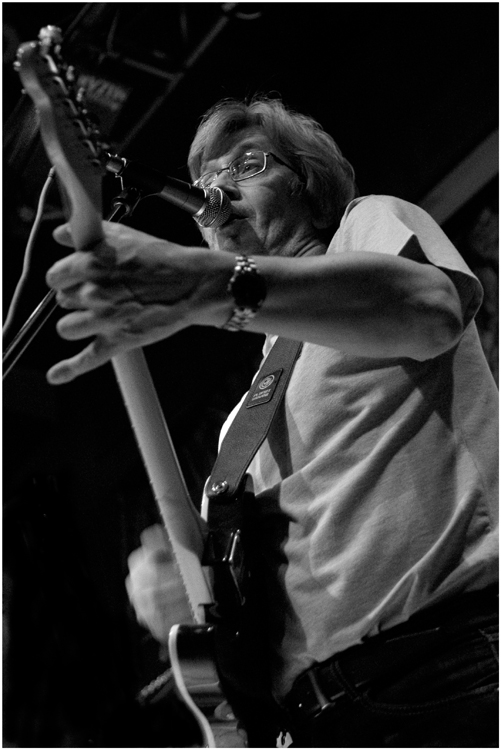|
Nikolsky (surname)
Nikolsky (russian: Никольский) is a surname. Notable people with the name include: People * Alexander A. Nikolsky (1903–1963), American helicopter theoretical pioneer * Alexander Nikolsky (1858–1942), Soviet zoologist * Alexandru Nicolschi (1915–1992), Romanian and Soviet communist politician * Andrei Nikolsky (1959–1995), Russian pianist * Andronik (Nikolsky) (1870–1918), bishop of the Russian Orthodox Church and a saint * Boris Nikolsky (1900–1990), Soviet physical chemist and radiochemist * Konstantin Nikolsky (born 1951), Russian rock musician * Mikhail Nikolsky (1891–?), Russian historian and founder of assyriology in Russia * Nikolay Nikolskiy (1877–1959), Russian ethnographer and historian * Nikolay Nikolsky (1878–1961), Soviet religious historian, orientalist, and academician * Nikolay Kapitonovich Nikolski (born 1940), Russian mathematician * Pyotr Nikolsky (1858–1940), Russian dermatologist * Sergey Nikolskiy, Soviet sprint canoer wh ... [...More Info...] [...Related Items...] OR: [Wikipedia] [Google] [Baidu] |
Alexander A
Alexander is a male given name. The most prominent bearer of the name is Alexander the Great, the king of the Ancient Greek kingdom of Macedonia (ancient kingdom), Macedonia who created one of the largest empires in ancient history. Variants listed here are Aleksandar, Aleksander and Aleksandr. Related names and diminutives include Iskandar, Alec, Alek, Alex, Alexandre (given name), Alexandre, Aleks (given name), Aleks, Aleksa (given name), Aleksa and Sander (name), Sander; feminine forms include Alexandra, Alexandria (given name), Alexandria, and Sasha (name), Sasha. Etymology The name ''Alexander'' originates from the (; 'defending men' or 'protector of men'). It is a compound of the verb (; 'to ward off, avert, defend') and the noun (, genetive, genitive: , ; meaning 'man'). It is an example of the widespread motif of Greek names expressing "battle-prowess", in this case the ability to withstand or push back an enemy shield wall, battle line. The earliest Attested langua ... [...More Info...] [...Related Items...] OR: [Wikipedia] [Google] [Baidu] |
Alexander Nikolsky
Alexander Mikhailovich Nikolsky (Russian: Александр Михайлович Никольский; February 18, 1858 – December 8, 1942) was a Russian and Ukrainian zoologist born in Astrakhan. From 1877 to 1881, he studied at the University of St. Petersburg, earning his doctorate several years later in 1887. From 1881 to 1891, he took part in numerous expeditions to Siberia, the Caucasus, Persia, Japan, et al. In 1887 he became an associate professor in St. Petersburg, later becoming director of the herpetology department at the Zoological Museum of the Zoological Institute of the Russian Academy of Sciences, Zoological Museum of the Academy of Sciences (1895). In 1903 he relocated as a professor to the Kharkiv University. In 1919 he was elected a member at the Academy of Sciences of Ukraine. Among his written works were ''Herpetologia Caucasica'' (1913), and volumes on reptiles and amphibians that were part of the series "Fauna of Russia and Adjacent Countries". He ... [...More Info...] [...Related Items...] OR: [Wikipedia] [Google] [Baidu] |
Alexandru Nicolschi
Alexandru Nicolschi (born Boris Grünberg, his chosen surname was often rendered as Nikolski or Nicolski; russian: Александр Серге́евич Никольский, ; June 2, 1915 – April 16, 1992) was a Romanian communist activist, Soviet agent and officer, and Securitate chief under the Communist regime. Active until 1961, he was one of the most recognizable leaders of violent political repression. Biography Early life Born to a Jewish family in Tiraspol, on the eastern bank of the Dniester river (part of Imperial Russia at the time), he was the son of Alexandru Grünberg, a miller. In 1932, he joined the local section of the Romanian Union of Communist Youth, a wing of the Romanian Communist Party (PCdR); in 1933, due to his political activities, he was arrested and held for two weeks by the Romanian secret police, Siguranța Statului.Deletant, p. 19 Later in the 1930s, as associates of General Secretary Vitali Holostenco, he and Vasile Luca were elected to the i ... [...More Info...] [...Related Items...] OR: [Wikipedia] [Google] [Baidu] |
Andrei Nikolsky
Andrei Vladimirovich Nikolsky (Russian: Андрей Владимирович Никольский; 1959 in Moscow - 3 February 1995 near Waterloo Waterloo most commonly refers to: * Battle of Waterloo, a battle on 18 June 1815 in which Napoleon met his final defeat * Waterloo, Belgium, where the battle took place. Waterloo may also refer to: Other places Antarctica *King George Island (S ...) was a Russian pianist. After receiving his first piano lessons at the age of five, Nikolsky entered the Moscow Tchaikovsky Conservatory in 1976, where his teachers included Stanislav Neuhaus and Lev Naumov. He also studied with Hans Leygraf at the Mozarteum in Salzburg. Nikolsky won second prize at the Concours Long-Thibaud in 1979, as well as first prize at the Queen Elisabeth Music Competition in 1987. He died in a car accident in 1995. Some of his recordings include the Chopin preludes, Sonata No. 2 and Rachmaninoff Sonata No. 2 1995 deaths 1959 births Russian classical ... [...More Info...] [...Related Items...] OR: [Wikipedia] [Google] [Baidu] |
Andronik (Nikolsky)
Archbishop Andronik (also spelled Andronic; russian: Архиепископ Андроник, secular name Vladimir Alexandrovich Nikolsky, russian: Владимир Александрович Никольский; August 1, 1870 – July 7, 1918), was a bishop in the Russian Orthodox Church and a saint, glorified as Hieromartyr Andronik, Archbishop Of Perm in 2000. Early life Archbishop Andronik was born as Vladimir Nikolsky, on August 1, 1870, in Povodnevo, a village in Myshkinsky Uyezd, Yaroslavl diocese. His father was a deacon in the Russian Orthodox Church. After he finished his studies at the Yaroslavl Seminary in 1891, he entered the Moscow Theological Academy. On August 1, 1893, during his studies in Moscow, he was tonsured a monk and given the religious name of Andronik. He was ordained to the diaconate on August 6 of that same year. On July 22, 1895, he was ordained as a priest. Russian Orthodox Church From 1895, Andronik was assigned first to the theologic ... [...More Info...] [...Related Items...] OR: [Wikipedia] [Google] [Baidu] |
Boris Nikolsky
Boris Petrovich Nikolsky (russian: Бори́с Петро́вич Нико́льский; – 4 January 1990) was a Soviet chemist and radiochemist Radiochemistry is the chemistry of radioactive materials, where radioactive isotopes of elements are used to study the properties and chemical reactions of non-radioactive isotopes (often within radiochemistry the absence of radioactivity leads to ..., academician of the Soviet Academy of Sciences, and professor of Saint Petersburg (then Leningrad) Leningrad State University, State University. Boris Nikolsky was a 1925 graduate of Saint Petersburg State University, Leningrad State University. In the 1930s he studied the ion exchange processes between aqueous solutions and solids. During that time Nikolsky developed the theory of ion exchange in glass electrodes. He derived equations that describe properties of glass electrodes as well as other types of ion-selective electrodes depending on chemical structure and multi-component comp ... [...More Info...] [...Related Items...] OR: [Wikipedia] [Google] [Baidu] |
Konstantin Nikolsky
Konstantin Nikolaevich Nikolsky (russian: link=no, Константин Николаeвич Никольский; born 1 February 1951 in Moscow) is a Russian rock musician, singer, guitarist and songwriter. He has played with a lot of Russian bands, including Voskreseniye and Tsvety. Biography He started back as an amateur in the late sixties with Moscow band "Atlants" with Alexander Sikorsky. He worked in official bands during the '70s, most notably a guitarist for Stas Namin band "Tsvety" and "Festival". Working for Festival he wrote songs for films. In the summer of '81 he joined the band Voskreseniye as a songwriter and guitarist. Writing hit songs such as "O Chem Poyot Nochnaya Ptitsa" ("Of What the Night Bird Sings") and "Zerkalo Mira" ("The Mirror of the World"), the band shot to fame, and these songs became instant classics. He only recorded one album with Voskreseniye: "Voskreseniye 2". It was recorded in a basement of an old office over three days, and is perhaps the m ... [...More Info...] [...Related Items...] OR: [Wikipedia] [Google] [Baidu] |
Nikolay Nikolskiy
Nikolay Mikhaylovich Nikolsky (1877–1959) was a Russian and Soviet religious historian, orientalist and biblical scholar. He became a corresponding member of USSR Academy of Science The Russian Academy of Sciences (RAS; russian: Росси́йская акаде́мия нау́к (РАН) ''Rossíyskaya akadémiya naúk'') consists of the national academy of Russia; a network of scientific research institutes from across t ... in 1946. Sources 1877 births 1959 deaths Writers from Moscow People from Moskovsky Uyezd Members of the Supreme Soviet of the Byelorussian SSR (1947–1950) Russian ethnographers 20th-century Russian historians Researchers of Slavic religion Imperial Moscow University alumni Belarusian State University faculty Academicians of the Byelorussian SSR Academy of Sciences Soviet partisans Recipients of the Order of Lenin {{USSR-scientist-stub ... [...More Info...] [...Related Items...] OR: [Wikipedia] [Google] [Baidu] |
Nikolay Nikolsky
Nikolay Vasilyevich Nikolsky (19 May 1878 – 2 November 1961) was a Russian historian, ethnographer, folklorist, lexicographer of half-Russians, Russian (mother) half- Chuvash people, Chuvash (father) ethnicity. Biography Nikolay Vasilyevich Nikolsky was born in a village of Yurmekeykino, Yadrinsk uyezd (today Morgaushsky District of Chuvash Republic) in the family of Surveying, surveyor. After finishing the local Shumatov zemstvo College he enrolled in the Theological College in Cheboksary. After that he studied also in the Theological Seminary in Kazan which Nikolsky finished in 1899 and then continuing to study at the Theological Academy of Kazan. Upon graduation of the academy he obtained the title of magistrate and his dissertation by the academy council was recognized as the best to reflect the history of Russian church. By the referral of the Kazan Academy the ober-procuror of Holy Synod appointed Nikolsky as the instructor at the Theological Seminary in Irkutsk. He reject ... [...More Info...] [...Related Items...] OR: [Wikipedia] [Google] [Baidu] |
Nikolai Kapitonovich Nikolski
Nikolai Kapitonovich Nikolski (Николай Капитонович Никольский, sometimes transliterated as Nikolskii, born 16 November 1940) is a Russian mathematician, specializing in real and complex analysis and functional analysis. Nikolski received in 1966 his Candidate of Sciences degree (PhD) from the Leningrad State University under Viktor Khavin with thesis ''Invariant subspaces of certain compact operators'' (title translated from Russian). In 1973 he received his Doctor of Sciences degree (habilitation). He was an academician at the Steklov Institute of Mathematics in Leningrad and taught at Leningrad State University. In the 1990s he became a professor at the University of Bordeaux. Nikolski's research deals with operator theory, harmonic analysis, and complex analysis. He was an Invited Speaker with talk ''What problems do spectral theory and functional analysis solve for each other?'' at the ICM in 1978 in Helsinki. In 2012 he was elected a Fellow of the ... [...More Info...] [...Related Items...] OR: [Wikipedia] [Google] [Baidu] |
Pyotr Nikolsky
Pyotr Vasilyevich Nikolsky (russian: Пётр Васи́льевич Нико́льский; September 13 [ O.S. September 1] 1858 – March 13, 1940) was a Russian dermatologist. He was born in Usman in the Russian Empire and earned his medical degree from the Saint Vladimir Imperial University of Kiev (now Taras Shevchenko National University) in 1884. After graduating, he studied under Mikhail Stukovenkov at the Department of Dermatology and Venerology in Kiev. In 1896, he defended his doctoral thesis on pemphigus foliaceus, in which he described a dermatological condition involving a weakening relationship among the epidermal layers. The sloughing of skin associated with certain varieties of this condition is now referred to as Nikolsky's sign. In 1898, he became a professor at the Imperial University of Warsaw, and later established the Department of Dermatology and Venerology in Rostov at what is now Southern Federal University. He published articles in Frenc ... [...More Info...] [...Related Items...] OR: [Wikipedia] [Google] [Baidu] |


